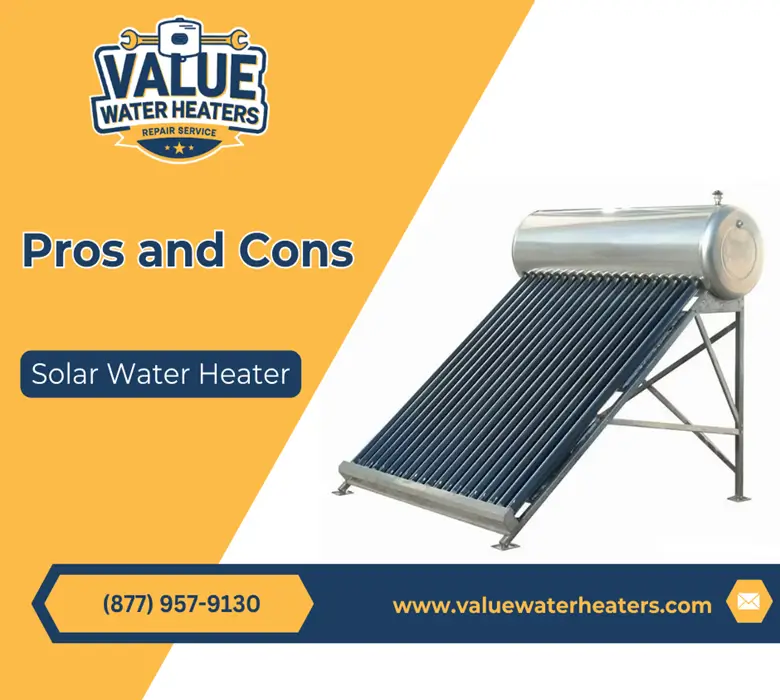Thinking about a solar water heater? Discover the pros and cons to decide if it’s a good fit for your home’s energy needs.
As energy costs continue to rise, many homeowners are exploring alternative ways to heat their water. Solar water heaters offer an eco-friendly solution that uses renewable energy from the sun. But is a solar water heater right for you? This post will break down the benefits and potential drawbacks of solar water heaters to help you decide.
How Solar Water Heaters Work
Solar water heaters use solar panels to capture energy from the sun, which then heats the water. Most systems consist of solar collectors and a storage tank. The system may have backup energy sources, like electricity or gas, for cloudy days or high-demand times.
Pros of Solar Water Heaters
- Eco-Friendly: Solar water heaters use renewable energy, making them a greener option with reduced carbon emissions.
- Cost Savings: While the initial investment is higher, solar water heaters can significantly reduce monthly utility bills, especially in sunny regions.
- Long Lifespan: With proper maintenance, solar water heaters can last up to 20 years or more.
Cons of Solar Water Heaters
- High Initial Cost: The upfront cost of a solar water heater can be a drawback. However, some incentives or rebates may help offset costs.
- Weather Dependent: In areas with less sunlight, a solar heater may not be as effective, requiring backup heating sources.
- Space Requirements: Solar panels need adequate roof space with good sun exposure to function optimally.
Is a Solar Water Heater Right for You?
Consider your climate, budget, and space availability. For those in sunny areas willing to invest in renewable energy, a solar water heater can be an excellent choice. However, if sunlight is limited or if high initial costs are a concern, alternative water heaters might be more practical.
Solar water heaters offer significant long-term benefits but also come with upfront costs and climate considerations. By understanding the pros and cons, you can make an informed decision that suits your energy needs and environmental values.




No comment